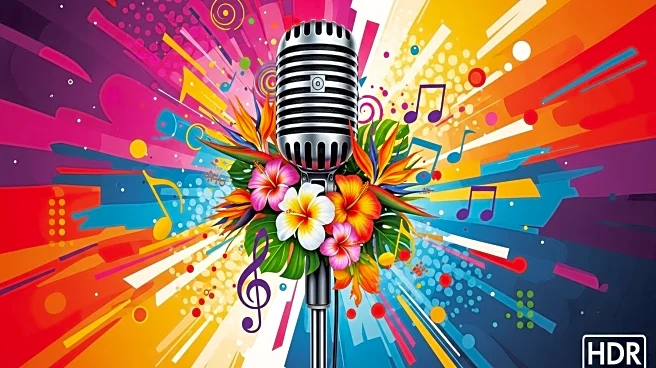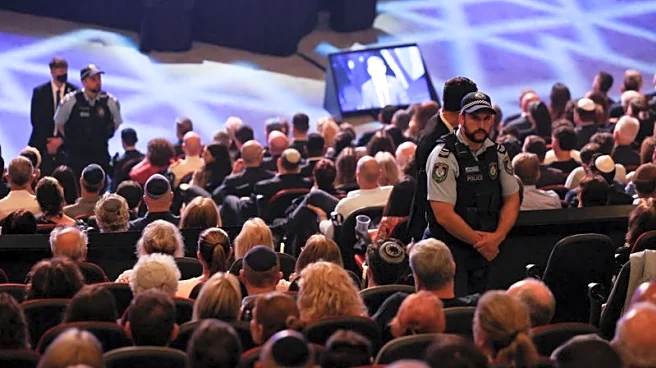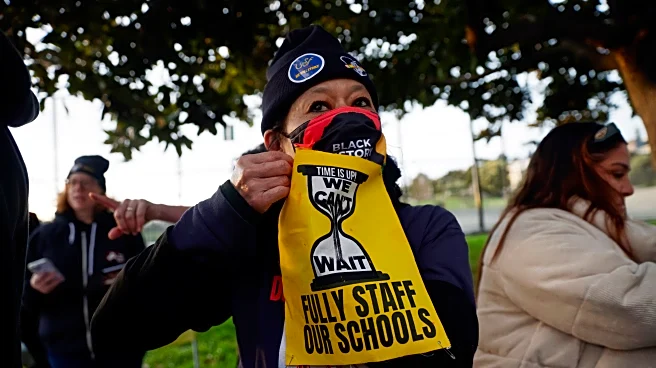What's Happening?
Bad Bunny has been announced as the halftime performer for Super Bowl LX, igniting discussions about Latino representation in major U.S. events. The decision has been met with mixed reactions, particularly from conservative commentators who question the choice of a Puerto Rican artist singing in Spanish. Corey Lewandowski, a confidant of President Trump, expressed disapproval, suggesting Bad Bunny's selection is divisive. Despite the criticism, Bad Bunny's global popularity and previous Super Bowl performance with Jennifer Lopez and Shakira highlight his significant impact on the music industry. Historically, non-American artists have headlined the Super Bowl, such as the Rolling Stones and U2, underscoring the event's international appeal.
Why It's Important?
The inclusion of Bad Bunny in the Super Bowl halftime show is significant as it reflects the growing acceptance of diverse cultural influences in American entertainment. This decision could enhance the NFL's global reach, appealing to a broader audience. It also highlights ongoing cultural politics surrounding Latino performers in the U.S., challenging traditional notions of American identity. The backlash from conservative figures underscores the tension between cultural inclusivity and nationalism. As Latino representation increases in prominent events, it may influence public policy and societal attitudes towards diversity and immigration.
What's Next?
The upcoming Super Bowl performance by Bad Bunny may prompt further discussions on cultural representation in American sports and entertainment. Stakeholders, including political leaders and cultural commentators, may continue to debate the implications of featuring non-English speaking artists. The NFL's decision could lead to increased efforts to diversify its events, potentially influencing other major U.S. cultural institutions. As the event approaches, reactions from various groups may shape the narrative around Latino representation and inclusivity in American society.
Beyond the Headlines
The controversy surrounding Bad Bunny's performance highlights deeper issues of cultural identity and language in the U.S. The debate reflects broader societal challenges in embracing multiculturalism and bilingualism. Historically, language has been a point of contention in discussions about American identity, as seen in past political debates. The Super Bowl, as a cultural touchstone, serves as a platform for these discussions, potentially influencing long-term shifts in cultural acceptance and policy regarding language and representation.











